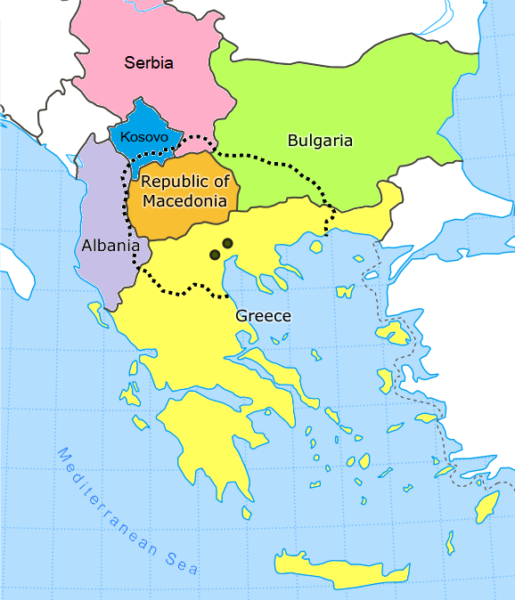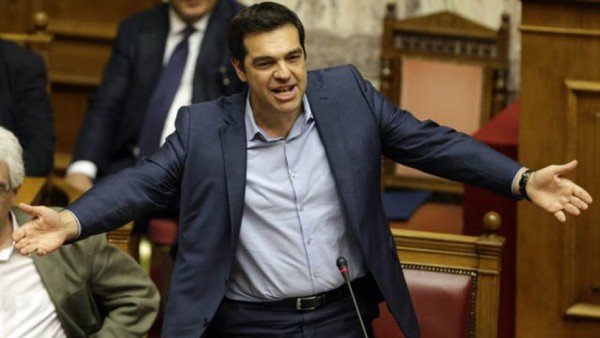Greece: Huge Athens Rally over Macedonia Name Dispute
More than 100,000 people from across Greece have taken to the streets of Athens on February 4 in a protest about the decades-long dispute over the name Macedonia.
Many Greeks object to the country of the same name calling itself Macedonia, saying it implies a territorial claim on Greece’s northern Macedonia region.
They oppose Greek government proposals on resolving the issue.
Famous Zorba The Greek composer Mikis Theodorakis, 92, was among those addressing the crowds.
On February 3, anarchists daubed red paint over Mikis Theodorakis’ home, but he was unfazed, declaring: “I am calm and ready.”
Protesters carrying Greek flags chanted “hands off Macedonia” and “Macedonia is Greece”, as they assembled in Syntagma Square outside parliament.
“Macedonia was, is and will forever be Greek,” Mikis Theodorakis told the huge crowds, adding that any suggestion of a name to resolve the dispute must be put to a referendum.
“If a government considers signing on behalf of our country… there is no doubt it must first ask the Greek people.”
The composer said the neighboring northern state was “illegitimate”.
EU Refugee Crisis: Macedonia Closes Border with Greece
Ancient Greek tomb complex discovered in Amphipolis
Greek Foreign Minister Nikos Kotzias recently received death threats when he said he expected the dispute to be resolved within months.
It is the second such protest in two weeks. On January 21, some 90,000 demonstrators rallied in Thessaloniki, the capital of the Macedonia region.
Organizers of February 4 protest estimated that 1.5 million people had attended but police said turnout was less than one tenth of that.
The dispute has simmered since Macedonia gained independence from Yugoslavia in 1991 and it has held up its attempts to join NATO and the EU.
Greece’s left-wing Syriza government says the issue is a diplomatic obstacle it wants resolved and has proposed agreeing to a composite name for the country which would include the word Macedonia but ensure a clear differentiation from the Greek region.
Macedonia argues that its people can be traced back to the ancient kingdom of Macedon, once ruled by Alexander the Great, and that the name “Macedonia” is therefore the logical option.
However, PM Zoran Zaev said last month that Macedonia would change the name of its airport from Skopje Alexander the Great airport, to show good will.
The Greek Orthodox Church backs the campaign to stop Macedonia using any variant of the name.
In organizations such as the UN, where talks have been under way, Macedonia is officially known as the Former Yugoslav Republic of Macedonia (FYROM)
At home, the Macedonian government calls the country it administers simply “Republic of Macedonia”.
UN mediator Matthew Nimetz has suggested alternatives such as “Republic of New Macedonia”.
According to new reports, a proposal to name it “Republic of Macedonia-Skopje” was accepted by Greece but rejected by Macedonia.


